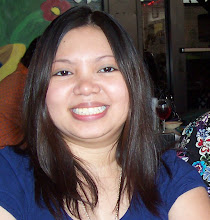
Publisher: HarperCollins Publishers
Pub. Date: October 2006
First Edition published: 1963
ISBN-13: 9780061148514
Pages: 288
Rating: 4 out of 5
Synopsis: The Bell Jar is the story of Esther Greenwood who is a junior editor of a magazine begins her descent towards depression. It became so severe that she tries to commit suicide, and she goes through therapy. This is a semi-autobiographical book about Sylvia Plath, who also battled her own demons of depression. She committed suicide in 1963.
Review: This was probably one of the darkest books I had ever read. It was very interesting, but there were some things that weren’t clear. For instance, it was never explained why Esther hated her mother in the first place. Esther’s mother obviously played some part that made her childhood terrible, but there were no specifics. Esther never really got over her father’s death either, and she somehow blamed her mother. Again, it was ambiguous.
Some parts were very disturbing like how Esther planned to kill herself a few times. I felt sorry for her especially when she was misdiagnosed by a doctor for mental illness instead of severe depression. The result harmed Esther instead of helping her, and eventually she almost succeeded in committing suicide.
Recommendation: It’s not the kind of story that everyone would like to read, and I think Sylvia Plath was bold to write this. If you are looking for a fun-filled or uplifting book to read, I suggest that you read something else. Esther’s story is the kind of story that no one likes to talk about. I do think it is an interesting book to be discussed in a book club though.
Pub. Date: October 2006
First Edition published: 1963
ISBN-13: 9780061148514
Pages: 288
Rating: 4 out of 5
Synopsis: The Bell Jar is the story of Esther Greenwood who is a junior editor of a magazine begins her descent towards depression. It became so severe that she tries to commit suicide, and she goes through therapy. This is a semi-autobiographical book about Sylvia Plath, who also battled her own demons of depression. She committed suicide in 1963.
Review: This was probably one of the darkest books I had ever read. It was very interesting, but there were some things that weren’t clear. For instance, it was never explained why Esther hated her mother in the first place. Esther’s mother obviously played some part that made her childhood terrible, but there were no specifics. Esther never really got over her father’s death either, and she somehow blamed her mother. Again, it was ambiguous.
Some parts were very disturbing like how Esther planned to kill herself a few times. I felt sorry for her especially when she was misdiagnosed by a doctor for mental illness instead of severe depression. The result harmed Esther instead of helping her, and eventually she almost succeeded in committing suicide.
Recommendation: It’s not the kind of story that everyone would like to read, and I think Sylvia Plath was bold to write this. If you are looking for a fun-filled or uplifting book to read, I suggest that you read something else. Esther’s story is the kind of story that no one likes to talk about. I do think it is an interesting book to be discussed in a book club though.


No comments:
Post a Comment